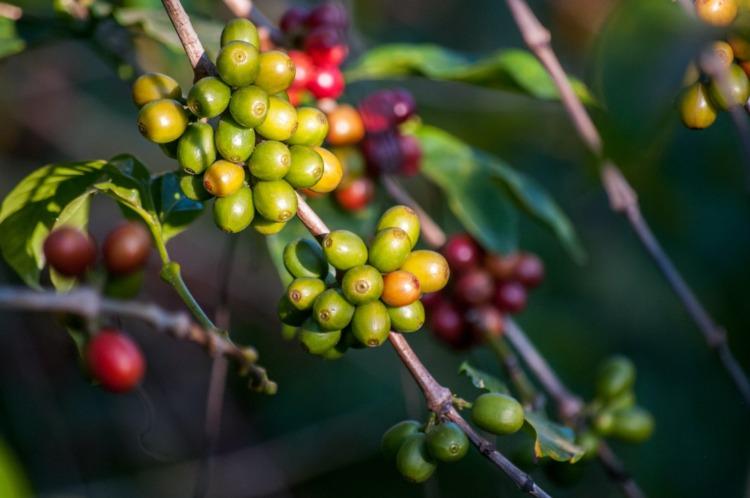Kenya’s Capital Markets Authority (CMA) has issued the first set of licenses to five coffee brokers in line with the Capital Markets (Coffee Exchange) Regulations, 2020.
In a statement, the Authority says the licenses will allow the brokers to carry out the role of coffee brokerage services at the Nairobi Coffee Exchange (NCE) with effect from 1 July 2021.
Meru County Coffee Marketing Agency Limited has been granted a full coffee broker licence, while others, which include Kipkelion Brokerage Company Limited, and Murang’a County Coffee Dealers Company have been granted conditional licences.
According to the Authority, they are expected to come into full compliance with the requirements of the Coffee Exchange Regulations within the next three months.
“The Authority is mandated to regulate the spot commodity markets in Kenya and in particular, the coffee commodity market according to Section 11(3) of the Capital Markets Act,” CMA said in a statement.
The Coffee Exchange Regulations were gazetted by the Cabinet Secretary of the National Treasury and Planning on 3 April 2020.
The Coffee Exchange Regulations together with the Crops Coffee General Regulations, 2019 envisage that the NCE and coffee brokers are to be licensed and supervised by the CMA with effect from 1 July 2020.
However, the Coffee Exchange Regulations provided for a transitional period of one year for the NCE to come into full compliance.
Speaking on the approval, CMA Chief Executive Wyckliffe Shamiah noted that the Authority is supportive of the reforms in the coffee subsector and is ready to execute its mandate as envisaged in the regulatory framework.
“As a result, these conditional licenses are our commitment to ensuring that the trading of coffee continues at the NCE without disruption even beyond the 30 June 2021 deadline” he said.
In order to ensure that there is no disruption in the coffee value chain, the Authority has granted an extension of 3 months to the Marketing Agents currently trading at NSE for them to apply for the coffee broker licence.
The Authority granted a provisional license to NCE on 1 July 2020 to continue operating in its existing form as it worked towards full compliance with the Coffee Exchange Regulations.
Shamiah added that the NCE’s in-principal approval has since been extended to 31 December 2021 to enable the Coffee Exchange to come into full compliance with the regulatory requirements.
NCE is expected to competitively select a commercial bank to provide the direct settlement system for clearing and settlement of coffee proceeds during this period.
The Authority said it continues to work with the National Treasury and Planning, the Central Bank of Kenya, the Ministry of Agriculture, Livestock, Fisheries and Cooperative, Agriculture and Food Authority.
Others include NCE, the State Department for Trade, Council of Governors, County Governments, Coffee Cooperatives ,Growers, Unions, the Coffee Millers and Marketers, the Coffee Traders and other stakeholders through the coordination of the Coffee Subsector Reforms Implementation Standing Committee (CSRISC) which is domiciled in the Office of the President to support implementation of reforms in the coffee subsector.
A Sector Needing Rescuing
This comes at a time when the coffee sector has been facing reduced productivity and profits occasioned by poor prices, financial indiscipline among cooperative society officials and climate change.
According to the latest Commodity Markets Outlook by the World Bank, the country’s coffee production dropped 35 percent in the last 50 years as farmers kept off the crop.
The report indicates that the country used to sell almost a million 60 kg bags of coffee in 1970, a figure that hit to more than 1.5 million bags in the 1980s when the commodity was one of the country’s top foreign exchange earners.
The tribulations in the sector began in the 90s when the industry suffered a decline in performance and coffee prices dipped, prompting farmers to start agitating for changes in their respective factories.
According to the outlook, coffee production dropped to 650,000 bags in 2020/21. In 2019/20 the country produced 725,000 bags while in 2018/19 it produced 775,000 bags.
Experts are however expecting the sector to post improved performance; data from the Nairobi Coffee Exchange shows coffee prices at the auction opened 2021 on a high note. A 50-kilogramme bag fetched Sh35,970 in January from Sh34,000 recorded in the last sale of 2020.
The performance is on account of various reforms that have been put in place in the sector through the Coffee Bill 2021, which is seemingly steering recovery.
The reforms put in place by President Uhuru have rescued smallholder farmer from the yoke of cartels, right from the local factory level, all the way to the coffee auction.
